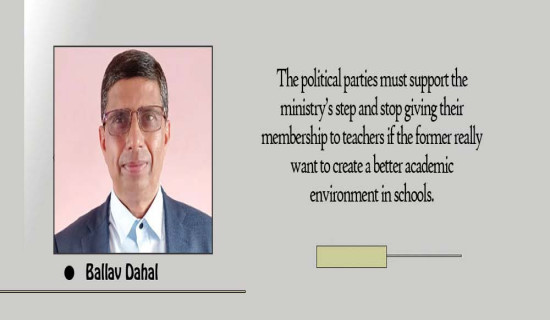- Tuesday, 30 April 2024
Act Urgently On Climate
First it was the hottest June on record, then the July was the hottest, and the trend followed through December. Eventually, year 2023 was declared the hottest year on record. Nearly three–and-a-half months into year 2024, months of February and March have already been declared the warmest February and March on record. The repercussions have been dire: Heatwaves have increased in duration, destroying or damaging lives and livelihoods. Crop-destroying droughts have grown in frequency, threatening food security and aggravating hunger crisis. Extreme climatic events like never-seen-before rains and ensuing floods have become new normal, wreaking havoc across countries and uprooting untold number of people from what they have called homes for centuries.
Global temperature monitoring groups have reckoned that levels of carbon dioxide and methane in the air last year hit all-time highs, jumping by 1.1 per cent over a period of one year. Perhaps never before in history has humanity grappled with existential crisis as severe as it is facing now. Galvanised by this universally faced chilling reality, the head of the United Nations climate agency, Simon Stiell, have warned that humans have only two years left to save the world by making dramatic changes in the way it spews heat-trapping emissions and that it has even less time to act to get the finances behind such a massive shift. However, it seems that such impassioned pleas have failed to gone far enough, as in the past, to shake those who really matter in climate action out of complacency and spring into action.
For decades now, conference after conference has been convened to discuss climate crisis and to figure out a unanimously agreeable way to address it. Pledge after pledge has been made to curb emission of greenhouse gases, but when it comes to translating the commitments into action, nearly-all major emitters have fallen woefully short. And that's happening despite more and more people from across the societies and political spectrum wanting climate action, having already felt the daily impacts of climate crisis in their everyday lives and household budgets.
Global emissions need to be halved by 2030 if we are to meet the Paris Climate Agreement's goal of capping global temperature increases to 1.5 degrees Celsius. But governments are nowhere near that. Instead of mending their ways, rich and powerful countries are still licensing oil and gas companies to drill new places for newer sources of fossil fuel. This callous action is poised to worsen the gross inequalities between the global north and global south. While the former, which is largely responsible for the crisis, is relatively in better position to weather the storm, the latter is sure to bear the brunt. This climate injustice is intolerable to say the least. They need to be held accountable and made to pay through the climate loss and damage fund, which they themselves have pledged.
Though the action window is fast closing, it hasn't slammed shut yet, reckon climate scientists, who still feel that massive strengthening of action now will still make a difference. For this, ramping up of renewables, adoption of electric vehicles on a massive scale, among other measures, they argue, is a must. There's no denying that the longer we wait, the more it will cost.
















